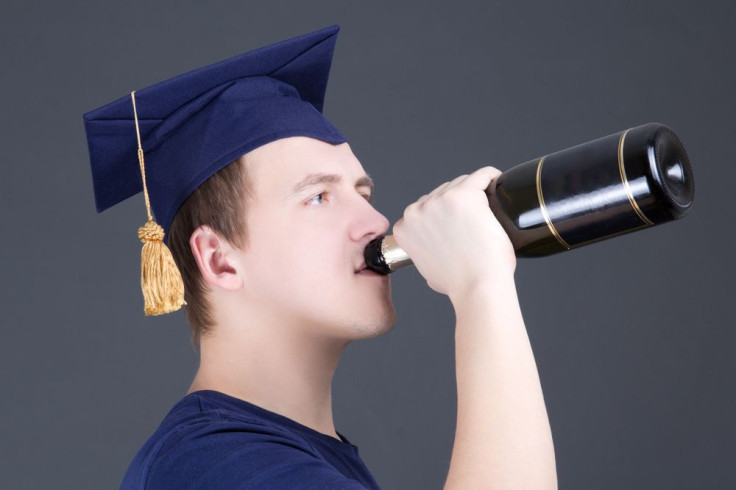Alcohol In College: Campus Security More Likely To Warn Students Who Commit Booze-Related Offenses Than Punish Them

Alcohol availability, unstructured time, limited interactions with parents or other adults, as well as several other factors have influenced alcohol abuse and binge drinking among college students, which seems to be the norm on most campuses. A recent study published in Alcoholism: Clinical & Experimental Research has revealed that law enforcement officials and campus security at major colleges in the United States tend to hold back from writing citations over alcohol-related offenses.
"Our study is the first to examine enforcement actions for alcohol laws by campus police and security agencies in a large, nationally representative sample of colleges," co-author Toben F. Nelson said in a statement. "We found that campus security or law enforcement officials were not likely to issue citations for violations of alcohol laws. More commonly, students were referred for discipline or sanctions to other officials within the university, rather than in formal courts. Students were generally not referred to the campus health center for alcohol screening or intervention. Contact with parents by campus security or law enforcement typically did not occur."
Nelson and his colleagues issued surveys to directors of campus police/security at 343 colleges across the nation. Questions applied to their security team’s method of dealing with serious, less-serious, and underage alcoholic incidents both on and off campus. Very few campus security directors reported issuing citations or referring students to the campus’ health center for an alcohol-related violation. The majority of directors who took action against alcohol offenses were from large colleges, public colleges, and colleges located in small towns. Underage and serious offenses received more enforcement action compared to less-serious offenses.
"We think the factors that contribute to higher rates among college versus non-college students and at heavy versus lighter drinking colleges are largely environmental,” Nelson added. “These factors include easy availability of alcohol through high density of commercial alcohol outlets such as bars and liquor stores, fraternity houses, and college-rental houses that serve alcohol at parties — particularly to underage students, low-cost alcohol due to cheap drink specials and low state and local taxes on alcohol, and heavy marketing of alcohol via billboards and other public signage and student-targeted publications such as alternative newspapers.”
Compared to young adults in the same age range, college students are much more likely to report drinking in the past 30 days as well as binge drinking. Higher rates of binge drinking on college campuses can in turn lead to other problems among students including drunk driving, sexual assault, violence, high-risk sexual behavior, academic trouble, and traffic deaths. The research team encouraged colleges to utilize health centers for students who commit alcohol-related centers before punitive action. Services provided by campus health centers, including treatment, counseling, and intervention, tend to be more effective in steering at-risk students away from binge drinking tendencies compared to punishment.
"It is important to note that enforcement is one important part of the larger system of alcohol prevention and treatment on college campuses," said co-author Darin J. Erickson. "The longstanding elevated alcohol use among college students, and associated problems, dictate that there is not one way to solve this issue. Campus officials representing education, policy, treatment and intervention, and enforcement need to work together to ensure that all of these pieces of the system are available."
Source: Bernat D, Erickson D, Nelson T, et al. College Law Enforcement and Security Department Responses to Alcohol-Related Incidents: A National Study. Alcoholism: Clinical & Experimental Research. 2014.



























